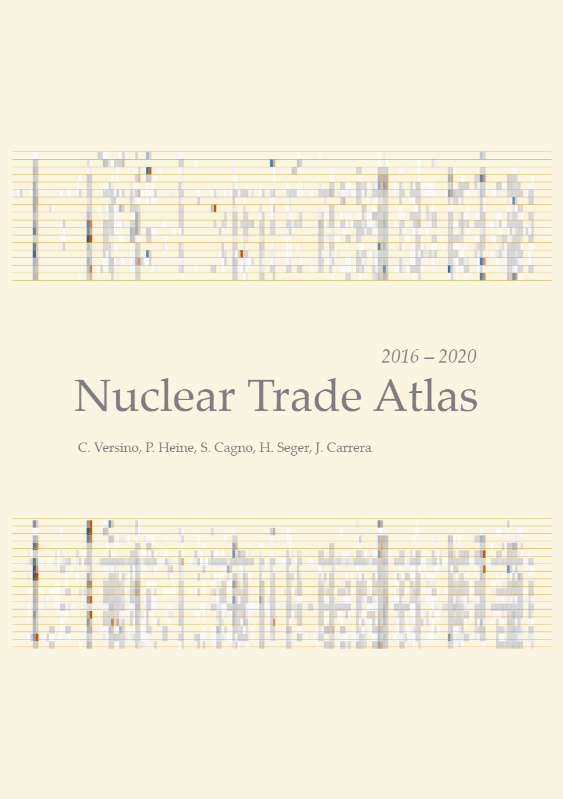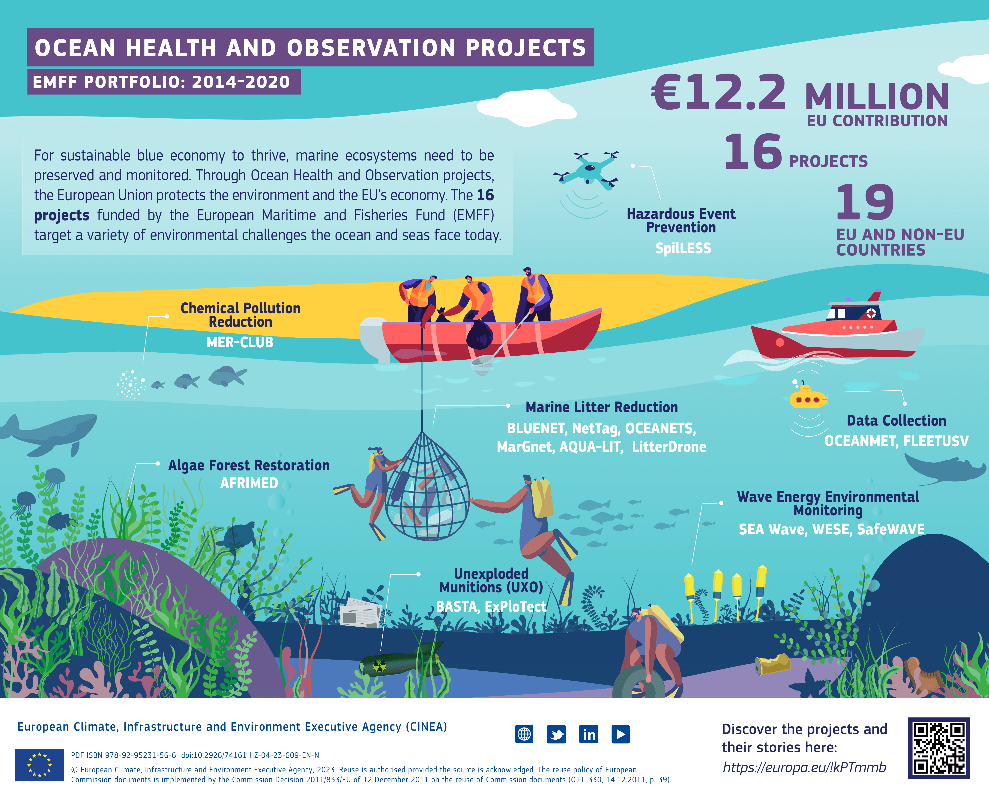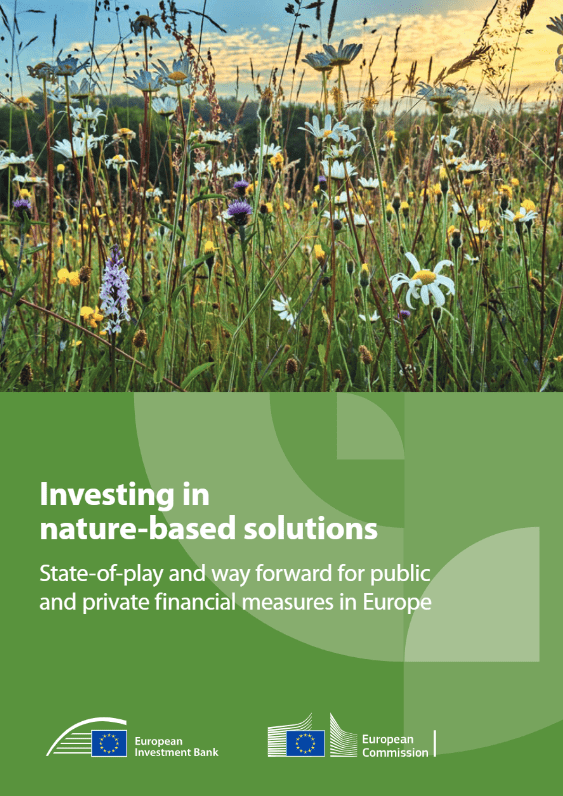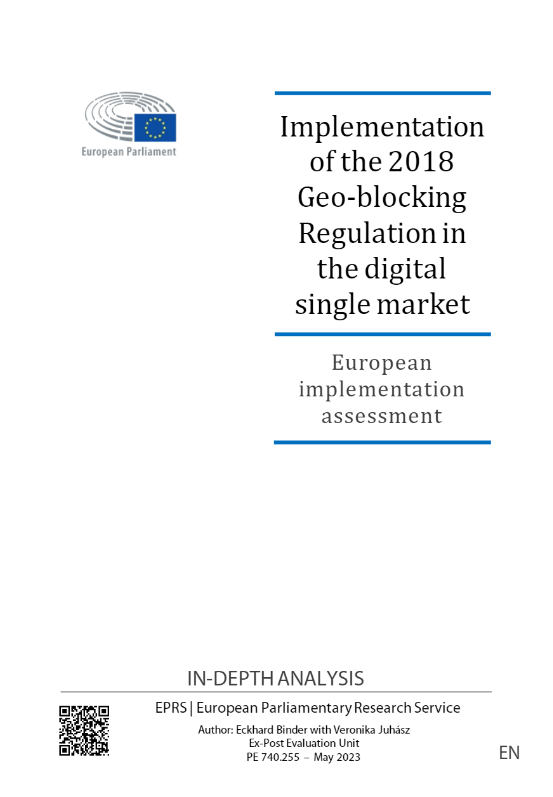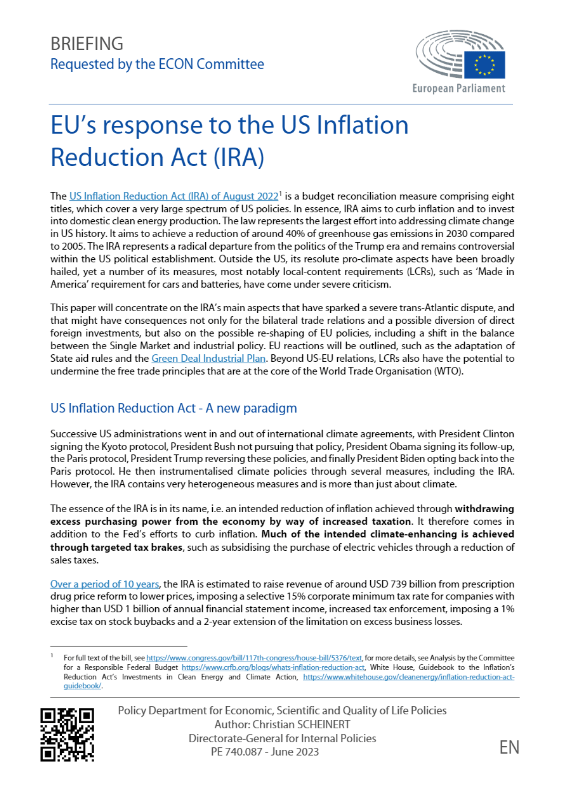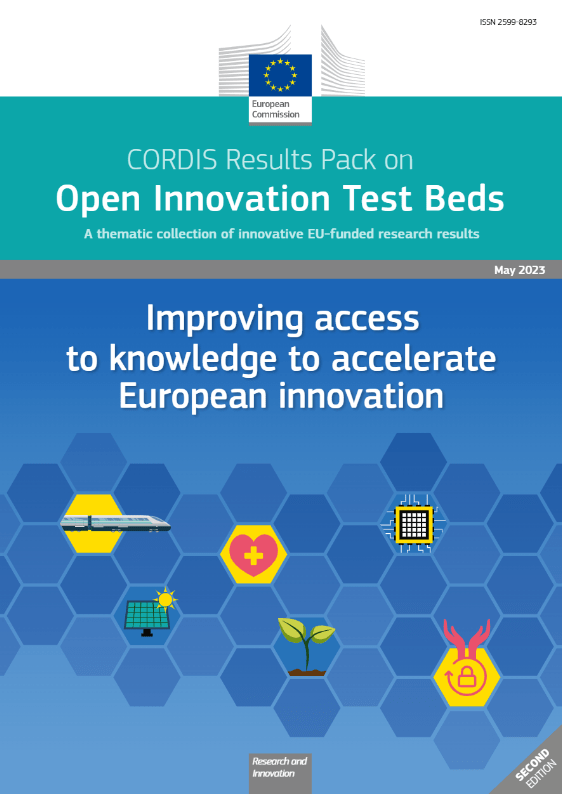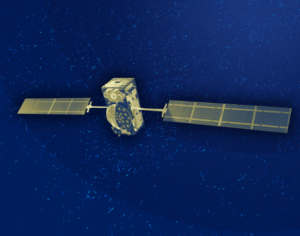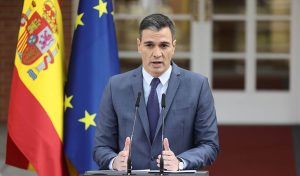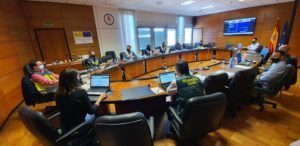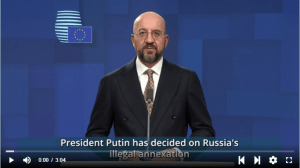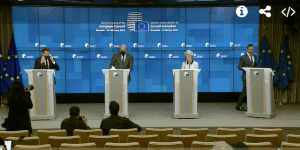
CDE Almería - Centro de Documentación Europea - Universidad de Almería
Centro de Documentación Europea de la Universidad de Almería
Defensa y Seguridad
Documentación comunitaria en las áreas de Ciberseguridad, Defensa, Seguridad y Terrorismo. Contiene también las últimas noticias, mediateca y boletines relacionados con la materia.
Estás aquí: Fondo Digital CDE > Defensa y Seguridad

Building on prior work developing a Strategic Trade Atlas promoting understanding of global trade flows of strategic goods, a Nuclear Trade Atlas was developed based on publicly available trade data. The Nuclear Trade Atlas examines trade patterns and trends for seventeen commodities based on a two-step assessment of the trade’s nuclear relevance: first estimating the probability that trade classified under a given Harmonized System (HS) code represents a specific commodity included in the export control lists of the Nuclear Suppliers Group, and second estimating the probability that the listed, often dual-use, commodity would be indicative of nuclear use. These estimates combine to provide a measure of the likelihood trade classified under a given HS code may be nuclear relevant. By exclusively focusing on the HS codes most highly ranked by this measure, the resulting data visualizations comprising the Nuclear Trade Atlas provide those responsible for regulating or monitoring nuclear trade greater understanding of relevant global trading patterns and trends. The Atlas includes both commodityand country-based views of nuclear trade. It is published as a book and as an interactive tool. Besides trade data, the interactive Atlas also includes data about countries’ non-proliferation commitments, allowing users to take this information into consideration while analyzing specific trade flows.
[Leer Más]For sustainable blue economy to thrive, marine ecosystems need to be preserved and monitored. Through Ocean Health and Observation projects, the European Union protects the environment and the EU’s economy. The 16 projects funded by the European Maritime and Fisheries Fund (EMFF) target a variety of environmental challenges the ocean and seas face today.
[Leer Más]Nature-based solutions are cost-effective interventions that provide environmental, social, and economic benefits and build resilience. This report highlights the challenges involved in financing nature-based projects and draws on the European Investment Bank’s experience in implementing the Natural Capital Financing Facility pilot programme in Europe and interviews with key players across the field. The analysis looks at nature-based solutions across six ecosystems and landscapes. The in-depth report also presents key recommendations on how to attract much-needed private investment, including the establishment of a range of funding and financing mechanisms, as well legislative solutions to facilitate cooperation among public entities and co-financing. Investing in nature-based solutions: State-of-play and way forward for public and private financial measures in Europe, was produced for the European Commission’s Directorate-General for Research and Innovation by the European Investment Bank’s Innovation & Digital Finance Advisory division.
Ver menos
EU border regions encounter legal and administrative obstacles in their cooperation. Citizens and businesses face unequal access to public services and fewer economic opportunities. COVID has highlighted the urgent need to address the remaining cross-border obstacles and define a long-term vision for unleashing the potential of border regions to become the drivers of European cooperation. The study identifies three policy options: status quo, soft-law measures, and adopting a new instrument (ECBM 2.0). Policy option 3 has the highest potential impact, addressing both legal and administrative obstacles, bringing benefits of €123 billion per year, as well as positive social impacts.
[Leer Más]The US Inflation Reduction Act (IRA) of August 20221 is a budget reconciliation measure comprising eight titles, which cover a very large spectrum of US policies. In essence, IRA aims to curb inflation and to invest into domestic clean energy production. The law represents the largest effort into addressing climate change in US history. It aims to achieve a reduction of around 40% of greenhouse gas emissions in 2030 compared to 2005. The IRA represents a radical departure from the politics of the Trump era and remains controversial within the US political establishment. Outside the US, its resolute pro-climate aspects have been broadly hailed, yet a number of its measures, most notably local-content requirements (LCRs), such as ‘Made in America’ requirement for cars and batteries, have come under severe criticism. This paper will concentrate on the IRA’s main aspects that have sparked a severe trans-Atlantic dispute, and that might have consequences not only for the bilateral trade relations and a possible diversion of direct foreign investments, but also on the possible re-shaping of EU policies, including a shift in the balance between the Single Market and industrial policy. EU reactions will be outlined, such as the adaptation of State aid rules and the Green Deal Industrial Plan. Beyond US-EU relations, LCRs also have the potential to undermine the free trade principles that are at the core of the World Trade Organisation (WTO)
[Leer Más]Europe’s tech industries face high capital costs and complex regulation. Knowledge sharing hubs can lower these barriers and bring products to market faster. This updated Results Pack on Open Innovation Test Beds showcases 10 EU-funded projects that are helping to bring new innovations to the market faster.
[Leer Más]- « Anterior
- 1
- …
- 72
- 73
- 74
- 75
- 76
- …
- 2.961
- Siguiente »
